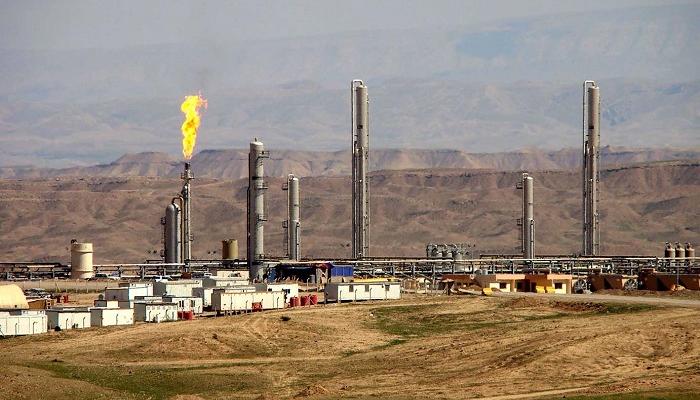Oil Slips From 2-Month High on Virus Restrictions

Shafaq News/ Oil slipped on Thursday from a two-month high as tighter restrictions were implemented in the U.S. to curb the virus spread, while cracks began to show in the united front put up by OPEC+ as it struggles to manage the market.
According to Bloomberg, Futures lost 0.8% after climbing 4.2% over the previous three sessions amid positive news on the outlook for a Covid-19 vaccine. The market gave up some gains in Asian trading after New York City -- the country’s early virus epicenter -- said it would shut schools due to rising infections.
Meanwhile, officials from the United Arab Emirates privately considered the idea of leaving OPEC+ with policy makers growing increasingly frustrated by what they see as an unfair allocation of output targets. The development comes as the alliance debates whether to delay a planned easing of cuts.
Oil rallied above $42 a barrel this week as vaccine developments helped to drive prices to the upper end of their recent trading range. A demand rebound in Asia also aided sentiment, with China seeing the first draw of its implied crude inventory in three years due to higher oil-processing rates. However, a resurgent coronavirus in the U.S. and Europe is weighing on the broader global recovery and sapping consumption of transportation fuels.
Only 35% of Americans will be taking to the roads this year during the Thanksgiving holiday, compared with 65% last year, according to GasBuddy, while in Europe, driving continued to decline.
“With more restrictions, it will hurt mobility and employment, and those will be obvious points of concern for oil traders into year-end,” said Stephen Innes, chief market strategist at Axi. “Asia’s insatiable demand for all things oil is doing the heavy lifting for the market these days and China’s buying binge looks set to carry on into 2021.”
West Texas Intermediate for December delivery slid 36 cents to $41.65 a barrel on by 0622 GMT
Brent for January settlement fell 0.56% to $44.09.
The move by the UAE is unusual because it has typically avoided public clashes, preferring to solve disputes behind closed doors. It’s unclear whether the warning is a maneuver to force a negotiation over production levels, or represents a genuine policy debate.
U.S. crude stockpiles, meanwhile, posted a smaller-than-expected gain last week, the Energy Information Administration reported Wednesday. Inventories rose by 769,000 barrels last week, compared with a 1.6-million-barrel boost forecast in a Bloomberg survey. Gasoline inventories climbed, while distillate supplies fell more than 5 million barrels last week.
OPEC + will discuss the oil prices in a ministerial meeting scheduled for December 30 and January 1.
Sources said OPEC + members were inclined to delay the current plan to increase production in January by 2 million barrels per day.





